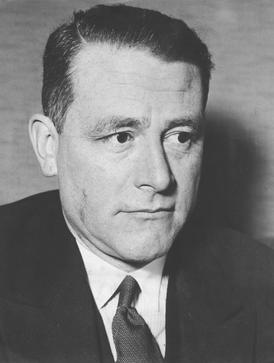The Atlantic, The Alarming Scope of the President's Emergency Powers, Jan/Feb 2019
Oh, joy.
Read it and weep. Then recall how you laughed at Chris Hedges and Snowden and Assange when they talked about "turnkey totalitarianism."
More here at the Brennan Center.
Photo is of Carl Schmitt, theorist of the Nazi party and governing by a "state of exception"--
Read it and weep. Then recall how you laughed at Chris Hedges and Snowden and Assange when they talked about "turnkey totalitarianism."
More here at the Brennan Center.
Photo is of Carl Schmitt, theorist of the Nazi party and governing by a "state of exception"--
During 1921, Schmitt became a professor at the University of Greifswald, where he published his essay Die Diktatur (on dictatorship), in which he discussed the foundations of the newly established Weimar Republic, emphasising the office of the Reichspräsident. In this essay, Schmitt compared and contrasted what he saw as the effective and ineffective elements of the new constitution of his country. He saw the office of the president as a comparatively effective element, because of the power granted to the president to declare a state of exception (Ausnahmezustand). This power, which Schmitt discussed and implicitly praised as dictatorial,[22] was more in line with the underlying mentality of executive power than the comparatively slow and ineffective processes of legislative power reached through parliamentary discussionand compromise.
Schmitt was at pains to remove what he saw as a taboo surrounding the concept of "dictatorship" and to show that the concept is implicit whenever power is wielded by means other than the slow processes of parliamentary politics and the bureaucracy: "If the constitution of a state is democratic, then every exceptional negation of democratic principles, every exercise of state power independent of the approval of the majority, can be called dictatorship."[29]
For Schmitt, every government capable of decisive action must include a dictatorial element within its constitution. Although the German concept of Ausnahmezustand is best translated as "state of emergency", it literally means "state of exception" which, according to Schmitt, frees the executive from any legal restraints to its power that would normally apply. The use of the term "exceptional" has to be underlined here: Schmitt defines sovereignty as the power to decide the instauration of state of exception, as Giorgio Agamben has noted. According to Agamben,[30] Schmitt's conceptualization of the "state of exception" as belonging to the core-concept of sovereignty was a response to Walter Benjamin's concept of a "pure" or "revolutionary" violence, which did not enter into any relationship whatsoever with right. Through the state of exception, Schmitt included all types of violence under right, in the case of the authority of Hitler leading to the formulation "The leader defends the law" ("Der Führer schützt das Recht").[22]
Schmitt opposed what he termed "commissarial dictatorship", or the declaration of a state of emergency in order to save the legal order (a temporary suspension of law, defined itself by moral or legal right): the state of emergency is limited (even if a posteriori, by law) to "sovereign dictatorship", in which law was suspended, as in the classical state of exception, not to "save the Constitution", but rather to create another constitution. This is how he theorized Hitler's continual suspension of the legal constitutional order during the Third Reich (the Weimar Republic's Constitution was never abrogated, emphasized Giorgio Agamben;[31] rather, it was "suspended" for four years, first with the 28 February 1933 Reichstag Fire Decree, with the suspension renewed every four years, implying a continual state of emergency).
